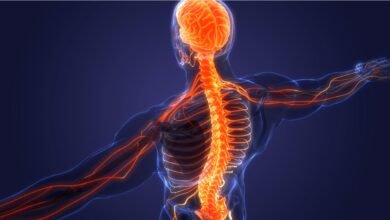The Impact of Innovations on Healthcare

In today’s rapidly evolving world, innovations have become a driving force behind advancements in healthcare. From cutting-edge technology to groundbreaking medical research, the impact of innovation on healthcare is profound and far-reaching. This article delves into the transformative effects of innovations on the healthcare industry, exploring how these advancements are improving patient care, revolutionizing treatments, and shaping the future of medicine.
Innovations on Healthcare
Innovations have always played a crucial role in advancing healthcare practices. From the discovery of antibiotics to the development of life-saving vaccines, history is replete with examples of how innovative breakthroughs have transformed the field of medicine. Today, with the rapid integration of technology and data-driven approaches, the impact of innovations on healthcare is more profound than ever.
The Evolution of Healthcare Innovations
Healthcare innovations have a rich and storied history that has continually reshaped the way we perceive and treat diseases. These innovations have played a pivotal role in improving patient care, extending lifespans, and reducing the burden of illness. Here, we will explore the historical perspective and modern technological advancements that have marked this transformative journey.
Historical Perspective
The journey of healthcare innovations can be traced back centuries. Throughout history, pioneering individuals have made groundbreaking discoveries and inventions that have had a profound impact on the practice of medicine.
One such milestone was the invention of the microscope by Antonie van Leeuwenhoek in the 17th century. This revolutionary device allowed scientists to observe microorganisms for the first time, paving the way for our understanding of bacteria, cells, and the microscopic world of diseases.
In the 18th century, Edward Jenner’s development of the smallpox vaccine marked a turning point in preventive medicine. His innovation laid the foundation for vaccination practices that continue to save countless lives to this day.
Moving into the 19th century, the discovery of anesthesia by William Morton revolutionized surgery by making procedures less painful and traumatic. This innovation expanded the possibilities of surgical interventions and improved patient outcomes.
Read More: Future of Healthcare: Innovations in the World
Modern Technological Advancements
As we transition into the modern era, healthcare innovations have taken on a digital and data-driven character. Here are some key areas of modern healthcare innovation:
Artificial Intelligence (AI) and Machine Learning
AI and machine learning have become powerful tools in healthcare. These technologies can analyze vast amounts of patient data to assist in diagnosis, predict disease outcomes, and even recommend treatment plans. AI-driven chatbots and virtual assistants are also enhancing patient engagement and support.
Telemedicine and Remote Monitoring
The advent of high-speed internet and digital communication platforms has led to the rise of telemedicine and remote monitoring. Patients can now consult with healthcare providers through video calls, making healthcare more accessible, especially in remote or underserved areas. Remote monitoring devices, such as wearable fitness trackers, allow individuals to track their health parameters and share data with their healthcare providers for better management of chronic conditions.
Genomic Medicine
The mapping of the human genome was a monumental achievement in the early 21st century. Genomic medicine leverages this knowledge to tailor treatments to an individual’s genetic makeup. This personalized approach to healthcare has the potential to revolutionize the treatment of various diseases, including cancer.
Robotic Surgery
Innovations in robotics have transformed surgical procedures. Robots equipped with precision instruments and cameras allow surgeons to perform minimally invasive surgeries with incredible precision. These procedures result in smaller incisions, reduced pain, and shorter recovery times for patients.
Electronic Health Records (EHRs)
The digitalization of health records has streamlined the healthcare system. Electronic Health Records (EHRs) enable healthcare providers to access patient information quickly and securely, leading to better coordination of care and reduced medical errors.
Telehealth Platforms
Telehealth platforms have gained popularity, particularly in light of the COVID-19 pandemic. These platforms enable virtual consultations and remote healthcare services, ensuring that patients can receive medical attention and advice without leaving their homes.
Enhancing Patient Care
Telemedicine and Remote Monitoring
Innovations on Healthcare: One of the most visible impacts of innovation in healthcare is the rise of telemedicine and remote monitoring. Telemedicine allows patients to consult with healthcare providers via video calls, eliminating geographical barriers to care. Remote monitoring devices, including wearable technology, enable continuous tracking of vital signs and health parameters, enhancing preventive care.
Personalized Medicine
Innovations have also paved the way for personalized medicine, where treatments are tailored to an individual’s unique genetic makeup. This approach not only increases treatment effectiveness but also reduces adverse reactions to medications.
Revolutionizing Treatments
Precision Surgery and Robotics
Innovations on Healthcare: Innovations in surgical procedures have led to precision surgeries with minimal invasiveness. Robotics-assisted surgery, for instance, allows for greater precision and reduced recovery times, ultimately improving patient outcomes.
Pharmaceutical Breakthroughs
Pharmaceutical innovations have yielded groundbreaking medications, including immunotherapies and gene therapies, which offer hope for previously untreatable diseases. These innovations are transforming the landscape of disease management.
Bridging Gaps in Healthcare Access
Innovations on Healthcare: Access to quality healthcare is a fundamental human right, but unfortunately, it remains unevenly distributed around the world. Healthcare disparities can be attributed to a variety of factors, including geographical location, socioeconomic status, and infrastructure limitations. Bridging these gaps in healthcare access is a critical goal for the global healthcare community. In this section, we will discuss two key strategies that have made significant strides in this endeavor: telehealth in underserved areas and the role of wearable health devices.
Telehealth in Underserved Areas
The Challenge of Healthcare Deserts
Innovations on Healthcare: One of the most significant challenges in healthcare access is the existence of healthcare deserts, areas where medical facilities and specialists are scarce or nonexistent. These deserts are often found in rural regions, remote areas, and economically disadvantaged communities. Patients in these areas face hurdles in accessing timely medical care, which can result in delayed diagnoses and poorer health outcomes.
The Rise of Telehealth
Telehealth, also known as telemedicine, has emerged as a transformative solution to address these disparities. It leverages technology to provide remote healthcare services, including consultations with healthcare professionals, diagnosis, and treatment. Telehealth has the potential to bridge the gap between patients and healthcare providers, regardless of their physical location.
Benefits of Telehealth
- Geographical Accessibility: Telehealth eliminates geographical barriers. Patients in remote areas can consult with specialists and receive medical advice without the need for extensive travel.
- Timely Care: Telehealth enables timely access to medical expertise. Patients can seek medical guidance promptly, which is especially crucial in emergencies.
- Reduced Costs: By reducing the need for travel and hospital visits, telehealth can help lower healthcare costs for patients and healthcare systems.
- Chronic Disease Management: Telehealth facilitates continuous monitoring and management of chronic diseases. Patients can use wearable devices to track their vital signs and share data with healthcare providers.
Wearable Health Devices
Empowering Individuals
Wearable health devices, such as fitness trackers, smartwatches, and portable health monitors, are playing a pivotal role in empowering individuals to take control of their health. These devices collect real-time data on physical activity, heart rate, sleep patterns, and more, allowing users to gain insights into their well-being.
Promoting Proactive Healthcare
The data collected by wearable devices can be shared with healthcare providers, enabling proactive healthcare management. For instance, a patient with a heart condition can wear a device that continuously monitors their heart rate and alerts both the patient and their doctor if irregularities occur.
Early Detection and Prevention
Wearable devices can aid in the early detection of health issues. They provide a constant stream of data, enabling healthcare professionals to identify trends and potential health risks. This proactive approach to healthcare can prevent complications and reduce the need for intensive medical interventions.
Accessibility and Affordability
Many wearable health devices are affordable and readily available to the general population. This affordability democratizes access to healthcare monitoring, making it accessible to a broader range of individuals, including those in underserved communities.
Data-Driven Healthcare
Electronic Health Records (EHRs)
Innovations on Healthcare: Electronic Health Records (EHRs) centralize patient information, enabling seamless coordination among healthcare providers. This innovation streamlines care and reduces errors.
Predictive Analytics
Innovations in predictive analytics use large datasets to anticipate disease outbreaks, track patient progress, and optimize resource allocation, all of which contribute to more efficient healthcare systems.
Challenges and Ethical Considerations
Innovations on Healthcare: Despite the numerous benefits, healthcare innovations also pose challenges and ethical dilemmas. Data privacy and security concerns, as well as the digital divide in access to technology, are issues that need to be addressed in an increasingly connected healthcare landscape.
The Future of Healthcare Innovation
Innovations on Healthcare: The journey of healthcare innovation is ongoing, with exciting possibilities on the horizon. As technologies continue to advance, we can expect further breakthroughs in disease prevention, diagnosis, and treatment. The collaboration between healthcare professionals, researchers, and technology experts will be instrumental in shaping the future of medicine.
Read More: The Best Healthy Snacks for Weight Loss
Conclusion
The impact of innovations on healthcare is undeniable. From telemedicine to precision surgery and data-driven healthcare, innovations are enhancing patient care, revolutionizing treatments, and making healthcare more accessible. However, as we embrace these advancements, it is crucial to address ethical considerations and ensure that healthcare innovations benefit all segments of society.
The historical perspective reveals that healthcare innovations have deep roots, with visionaries like Antonie van Leeuwenhoek, Edward Jenner, and William Morton laying the foundation for medical progress. These early innovations paved the way for a future where healthcare would be defined by precision, data, and accessibility.
In the modern era, technological advancements have revolutionized healthcare. Artificial intelligence, telemedicine, genomic medicine, robotic surgery, and electronic health records have all played vital roles in enhancing patient care, diagnosis, and treatment. Telehealth has bridged geographical divides, enabling patients in underserved areas to access medical expertise, while wearable health devices have empowered individuals to monitor and manage their well-being proactively.
FAQs
What role does AI play in healthcare innovation?
AI is used in healthcare to analyze large datasets, improve diagnostics, and personalize treatment plans. It plays a critical role in advancing healthcare innovation.
Are there risks associated with telemedicine?
While telemedicine offers many benefits, risks include data security breaches and misdiagnoses due to the lack of physical examination. These issues need to be managed effectively.
How do innovations affect healthcare costs?
Innovations can initially be costly to develop and implement, but in the long run, they have the potential to reduce healthcare costs by improving efficiency and preventing costly complications.
What ethical concerns surround genetic editing technologies?
Genetic editing technologies raise ethical questions about altering the human genome, including concerns about unintended consequences and the potential for designer babies.
How can individuals stay informed about the latest healthcare innovations?
Individuals can stay informed through reputable healthcare websites, medical journals, and discussions with healthcare providers. Keeping an eye on emerging technologies and research is essential for staying up to date.







